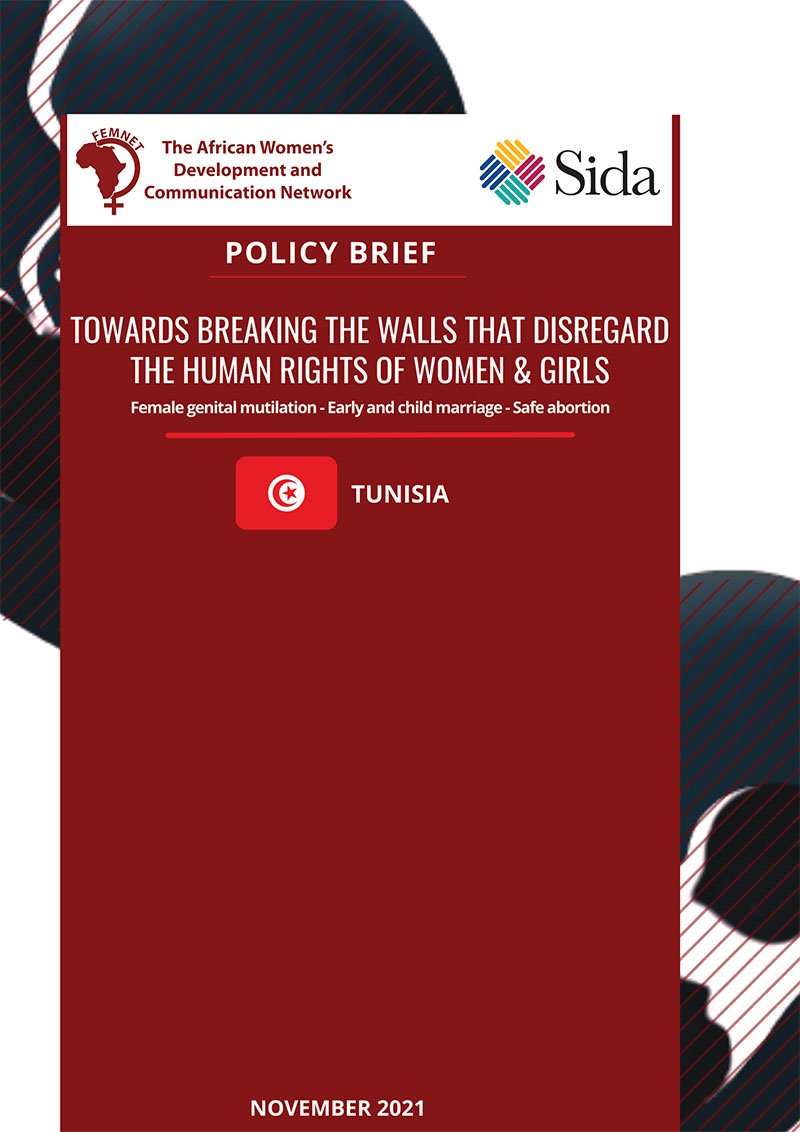
Policy Brief: Towards breaking the walls that disregard the human rights of women & girls – Tunisia
Female genital mutilation and child marriage harmful practices that are not highly practice in Tunisia, however that existing rate continue to threaten lives and the overall health and wellbeing of girls and women. Lack of access to safe abortion continues to present challenges for many women in the region driven by the deteriorating sexual and reproductive health which negatively impacts on women’s rights and wellbeing. Any woman with an unwanted pregnancy who cannot access safe abortion is at risk of seeking alternative means of pregnancy termination procedures. Unsafe abortion has a profound effect on the lives of women and girls including morbidities, mortality, and disabilities. Safe abortion is a human right meaning that women and girls have a right to make choices about their lives. Safe abortion has frequently become the privilege of the rich causing health inequalities as wealthier women can afford to pay any qualified health provider using underground networks and most women in Tunisia are poor to benefit from such networks.
This policy brief first provides an overview of FGM, early child marriages, and access to safe abortion in Tunisia. It then analyses the legal system of Tunisia pertaining the above-mentioned issues as well as advocacy initiatives that attempt to end such practices and those that seek to improve access to safe abortion. The brief highlights notable progress, gaps and key challenges experienced in responding to these issues. Finally, the brief proposes some best practices and recommendations and solutions in fighting child marriages and improving access to safe abortion. This brief is a basis and a starting point to influence policy makers, role players and practitioners in order to develop broad strategies on the issues related to FGM, child marriage and access to safe abortion.
